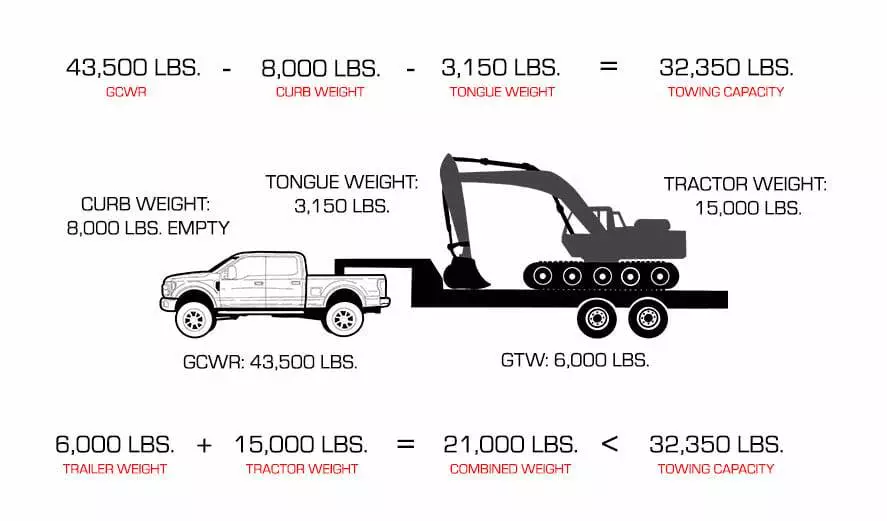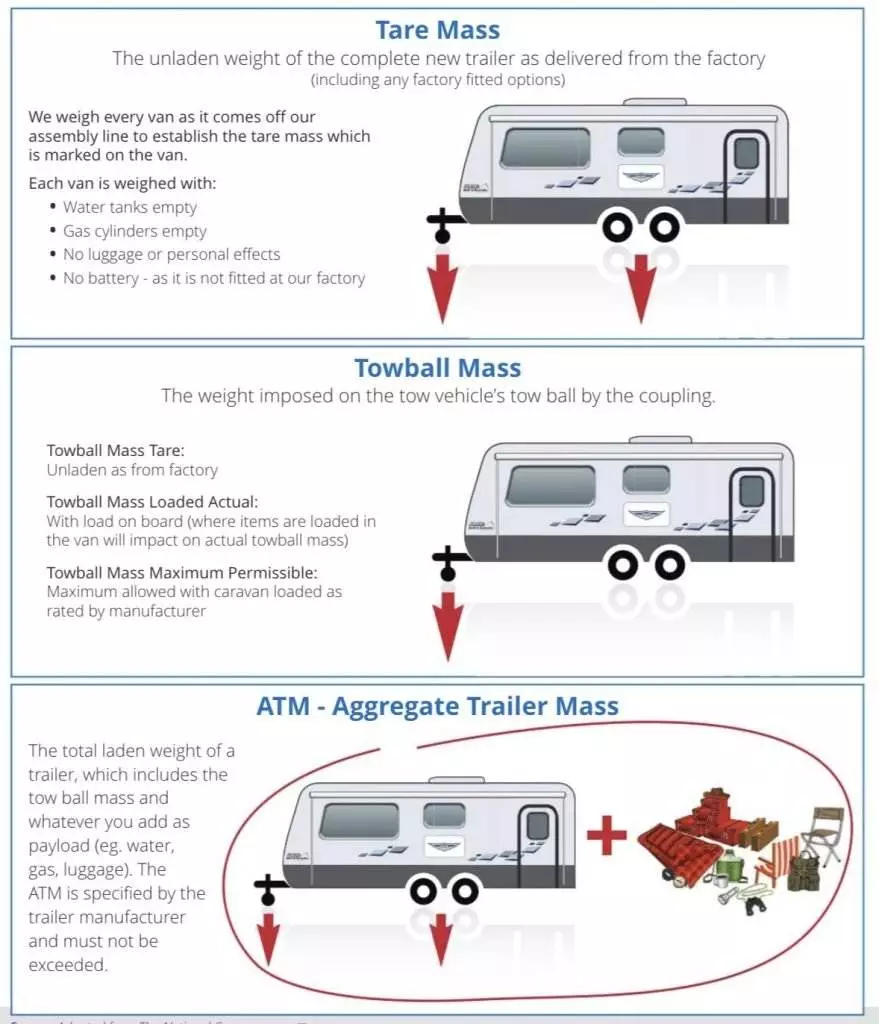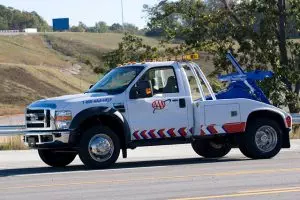Have you ever wondered what the technical term for towing weight is? It’s a question that often pops up in conversations when discussing trailers, boat hauls, or even moving vans. Understanding this term is crucial for anyone who frequently tows heavy loads, as it impacts their vehicle’s capacity and safety. So, allow us to shed some light on the topic and unveil the answer to the age-old question: what is the towing weight called?
What Is The Towing Weight Called?
When it comes to towing, understanding the different weight ratings is essential for safe and efficient towing. From the weight of the vehicle itself to the weight it can tow, there are various terms used to describe different aspects of towing weight. In this article, we will explore the different towing weight terms and what they mean, helping you navigate the world of towing with confidence.
Gross Vehicle Weight Rating (GVWR)
One of the primary weight ratings to consider when towing is the Gross Vehicle Weight Rating (GVWR). This rating refers to the maximum weight that a vehicle can safely carry, including its own weight, passengers, cargo, and fuel. It takes into account the strength and capacity of the vehicle’s chassis, suspension, brakes, and tires.
The GVWR is determined by the vehicle manufacturer and is usually listed on the driver’s side door jamb or in the owner’s manual. Exceeding the GVWR can lead to safety issues such as decreased vehicle control, increased stopping distance, and damage to the vehicle’s components.
Gross Combination Weight Rating (GCWR)
The Gross Combination Weight Rating (GCWR) is the maximum weight allowed for both the vehicle and its trailer, including all the occupants, cargo, and fuel. In other words, it is the combined weight of the towing vehicle, the trailer, and everything being carried by both.
The GCWR is crucial when determining the compatibility of a vehicle with a specific trailer. Exceeding the GCWR can put excessive strain on the vehicle’s engine, transmission, brakes, and suspension, leading to reduced performance and potential mechanical failure.

This image is property of www.weigh-safe.com.
Curb Weight
Curb weight refers to the weight of a vehicle without any passengers, cargo, or additional modifications. It represents the weight of a vehicle as it would come straight from the factory, including all standard equipment and a full tank of fuel.
Knowing the curb weight of your vehicle can help you calculate how much payload capacity and towing capacity it has available. It is important not to exceed these capacities, as doing so can have a detrimental impact on the vehicle’s performance and safety.
Payload Capacity
Payload capacity, also known as the carrying capacity, is the maximum weight that a vehicle can carry inside. It includes passengers, cargo, and any additional equipment or modifications. The payload capacity is determined by subtracting the vehicle’s curb weight from its Gross Vehicle Weight Rating (GVWR).
It is crucial to consider the payload capacity when towing, as the weight of the trailer tongue and any cargo inside the vehicle will contribute to the overall payload. Exceeding the payload capacity can lead to a compromised handling, braking, and overall stability while on the road.

This image is property of www.weigh-safe.com.
Tow Capacity
The tow capacity, also referred to as towing capacity, is the maximum weight that a vehicle can tow safely. It takes into account various factors such as the vehicle’s engine power, transmission, suspension, and braking system.
The tow capacity is specified by the vehicle manufacturer and can be found in the owner’s manual or online. It is important to note that the tow capacity may vary depending on the vehicle’s configuration, such as the engine size, drivetrain, or optional towing package.
Tongue Weight
Tongue weight refers to the downward force exerted onto the hitch ball by the trailer tongue. It is a crucial factor to consider for safe and stable towing. The tongue weight should typically be around 10-15% of the total trailer weight.
Having the correct tongue weight helps maintain proper trailer balance, allowing for better control and minimizing the risk of trailer sway. A tongue weight that is too high or too low can negatively affect the vehicle’s handling, braking, and overall towing stability.

This image is property of www.fastmelbournetowing.com.au.
Gross Axle Weight Rating (GAWR)
The Gross Axle Weight Rating (GAWR) specifies the maximum weight that each axle of a vehicle can safely carry. It includes the weight of the vehicle, occupants, cargo, and any additional equipment. The GAWR takes into account the strength and capacity of the individual axles, including the suspension, brakes, and tires.
Exceeding the GAWR can lead to a significant strain on the vehicle’s axles, suspension, and braking system. It can result in reduced control, increased stopping distances, and potential damage or failure of the vehicle’s components.
Gross Trailer Weight (GTW)
The Gross Trailer Weight (GTW) refers to the total weight of the trailer, including the trailer itself, its cargo, and any additional equipment or modifications. It is crucial to know the GTW when determining whether a vehicle is capable of safely towing a specific trailer.
Exceeding the GTW can put excessive strain on the vehicle’s engine, transmission, suspension, and braking system. It can lead to reduced performance, increased fuel consumption, and potential mechanical failure.

This image is property of www.torklift.com.
Towing Capacity
Towing capacity, sometimes referred to as trailer weight rating, indicates the maximum weight that a vehicle can safely tow. It considers the vehicle’s engine power, transmission, suspension, braking system, and other relevant factors.
The towing capacity is specified by the vehicle manufacturer and can be found in the owner’s manual or online. It is important to note that exceeding the towing capacity can have severe safety implications, compromising the vehicle’s stability, braking performance, and overall control.
Trailer Weight Rating (TWR)
Trailer weight rating, also known as trailer weight limit, refers to the maximum weight that a specific trailer is designed to handle safely. It is crucial to match the trailer weight rating with the towing capacity of the vehicle to ensure safe towing.
Exceeding the trailer weight rating can cause excessive strain on the trailer’s frame, suspension, and braking system. It can compromise the trailer’s structural integrity and increase the risk of accidents or equipment failure.
In conclusion, the world of towing is filled with various weight ratings and terms. Understanding these terms, such as the Gross Vehicle Weight Rating (GVWR), Gross Combination Weight Rating (GCWR), Curb Weight, Payload Capacity, Tow Capacity, Tongue Weight, Gross Axle Weight Rating (GAWR), Gross Trailer Weight (GTW), Towing Capacity, and Trailer Weight Rating (TWR), is crucial for safe and successful towing. By familiarizing ourselves with these terms and considering them when towing, we can ensure the safety of our vehicles, passengers, and cargo, while enjoying the freedom and convenience that towing provides.

This image is property of www.weigh-safe.com.



